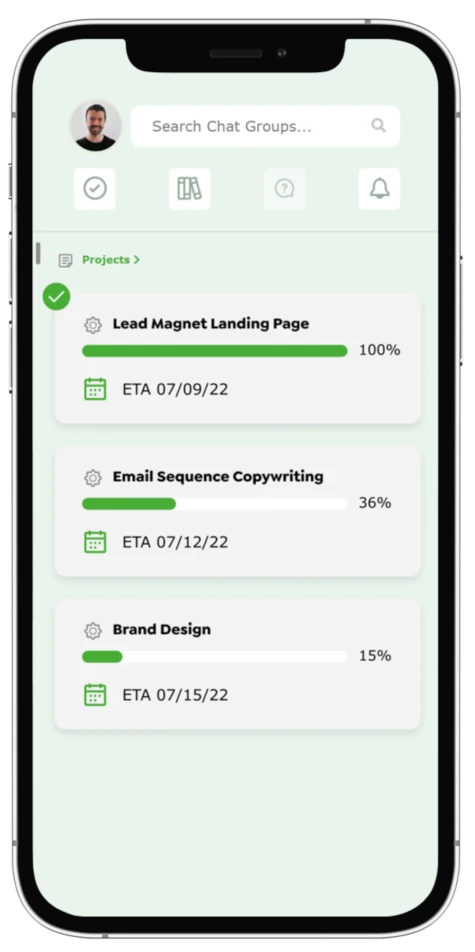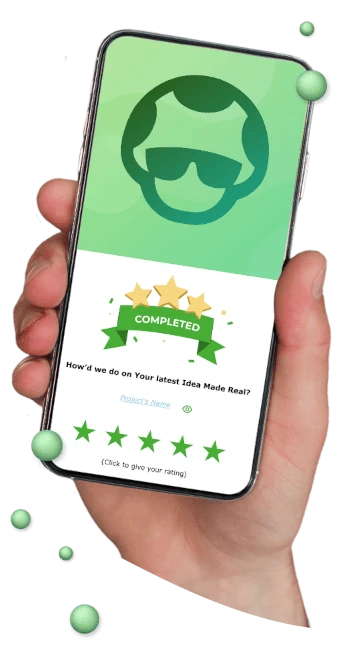Everything You Need To Know About SEO Best Practices in 2023
No matter if your goal is to grow traffic or promote your content, every digital marketing agency knows that proven-to-work SEO best practices are a must-have for a successful content marketing strategy.
But with Google releasing algorithm updates as many as 500 to 600 times a year, according to Play Media, it can be easy to fall behind on the fast-paced trends of SEO.
Because what worked in 2019 probably needs to be tweaked for 2022, and what worked in 2015 might as well be ancient history.
So, as we bring 2022 to a close and move into 2023, you might be wondering: What do I actually need to worry about with SEO in the upcoming year?
In this article, I’ll cover everything you need to know to maintain SEO best practices in 2023 for your agency’s content marketing and beyond, including:
- The big-picture trends that will change SEO within the next 5 to 10 years.
- 3 outdated SEO practices to avoid and 6 things you should do instead.
- 3 key takeaways you should incorporate into your agency’s SEO best practices as we move forward.
Let’s begin. Ready? Let me ask you something…

Why Is SEO So Important?
In case you don’t already know, SEO governs whether your clients’ websites, social media profiles, blog posts, or any other type of digital content shows up on search engine results pages to relevant search queries.
With 68% of online experiences starting with a search engine and 92.96% of global web traffic coming from Google’s suite of search options (according to Ahrefs.com), if you’re not showing up in search results pages, you basically don’t exist.
But SEO is also a bit deeper than that.
As an agency, you need to look for solutions that help you scale your business in a sustainable and realistic way — which means you need certain things to be automated.
When I first started AutoGrow as an agency, I would spend hours of my time going to networking events to try to attract clients and drum up business.
Not only was this stressful on a personal level, it also wasn’t efficient — if every sale began with my outreach, there was no way I could scale the business. I would forever be stuck with the volume of clients I could personally convert.
SEO gave me the opportunity to change this. By getting AutoGrow’s website to rank higher on search engine results pages (SERPS) and appear in relevant search queries, I was able to automate a lot of the busy work by helping clients come to me — not the other way around.
When SEO is done correctly, it creates compounding returns — as a page gets more and more clicks, visitors, and conversions, it signals to the search algorithm that the page is worthy of ranking even higher. When the page ranks higher, you get even more traffic, and the cycle continues.
So, even though SEO may not lead to a short-term jump in traffic or conversions, it will help you a lot in the long run in creating an automated process for attracting business and making more sales.
How SEO Best Practices Are Changing: The Big Picture
Although the technical components of SEO probably won’t change too drastically too quickly, the broader picture of technology is changing. This has a lot of implications over the future of SEO and how you want to frame your SEO strategy.
Over the past few years, Google and other search engines have been dramatically shifting their landscape to prioritize value-driven content over mere technical hacks — things like spamming keywords or producing tons of low-quality content to boost traffic.
This is being done with more advanced technology that can more easily detect the nuances in both content and human behavior.
More detailed data and analytics methods used in Google Analytics (which are used in almost every website on the internet) are able to detect which pages users visit, how long they’re staying on them, what they click after visiting, and so on.
This means that Google can collect data about what content users are actually interested in and interact with (meaning content they click on and stay on vs. content they click on and immediately click off of) compared to content that uses clever SEO tactics but doesn’t deliver anything of substance.
Google is also improving its ability to recognize content created by a real human being instead of AI and content that goes into depth about its subject matter.
Google is also improving its ability to track user data based on the searcher, such as location, previous search habits, interests, other content they’ve viewed, and so on.
For example, in the past, users had to input phrases like “near me” or “in Los Angeles” in a search query to indicate they were looking for local businesses. Now, the algorithms can automatically detect search queries that are probably looking for local results and generate SERPs that reflect that.
Artificial intelligence is also changing the SEO game. With the rise of machine learning and other technologies, search engines are now able to extract information from content in ways that weren’t possible just a few years ago.
For example, AI can recognize voice commands and translate them into text — this means that Google is getting more accurate at understanding people’s actual intent when they search for things, even if the words they use are different.
So what does this mean for SEO best practices? Simply put, in order to achieve high search rankings and get your target audience to engage with your content, you need to focus on creating genuinely valuable, authentic content that your audience can relate to and connect with.
You need to think like a human, not a robot — don’t just parrot search phrases and check off a list of technical factors like title tags or links. Instead, make your content organic, genuinely informative, and like something you would actually want to consume.
3 Things To Avoid in Your 2023 SEO Best Practices
So on a more concrete level, what exact techniques should you be incorporating into your seo strategy moving forward?
Here are some things to avoid in 2023.
1. Forcing Keywords That Don’t Make Sense
One of the most common and outdated SEO techniques is to simply fill your content with keywords that you want to rank for — even when they don’t make logical or grammatical sense with your content. This might have worked in the past, but it’s becoming less effective as technology improves.
Instead of forcing a keyword into your content without thinking about its context or meaning, focus on crafting content that makes sense for your audience and incorporates keywords and key phrases in a more natural way.
They don’t have to be phrased exactly how they’re phrased in a search query — the Google algorithm is advanced enough to understand that someone searching for “computer parts HP” will be okay with a site that uses “HP computer parts” or “computer parts for HP.”
In fact, a site that uses more natural language may actually be ranked higher than a site that uses unnatural keyphrases.
2. Keyword Stuffing
Another common SEO mistake is “keyword stuffing” or focusing on ensuring a keyword appears in a page a certain number of times.
Many people have very specific theories about keyword density — some claim a keyword should appear once every 100 words, while others claim it should be every 500 words or 1,000 words.
While this certainly mattered in the past, in the present, keyword density has very little to do with how Google ranks your content — and it’s only going to get less relevant over time. So if you’re hyperfocused on jamming in an extra mention of a keyword into your blog, don’t worry about it too much.
3. Other Hyper-Technical Factors
There are also many other technical factors that search engines take into account when ranking your site — things like the title tags, H1 tags, and URLs.
While these factors are by no means irrelevant, the future of SEO is moving in a direction where they won’t matter as much. So if your SEO best practices are geared around ensuring you’ve done a laundry list of technical work at the expense of making your content engaging or interesting, you’re going to see far less results from it moving into the future.
6 Things To Focus on for Your 2023 SEO Best Practices
So if technical factors are dead, what should you focus on moving forward into 2023?
Here are the top 6 tips and strategies you should emphasize.
1. Using Long-Tail Keywords
One of the best things you can do to improve your search rankings and engage your audience is to utilize long-tail keywords — specific, niche keyword phrases that indicate more intent and specificity than a simple, general keyword.
For example, if you’re creating content about organic produce (a general keyword), you may be competing with many other sites that are all focusing on the same topic.
But if you focus on niche search terms like “organic tomatoes for sale in Westchester” or “tomato varieties for backyard gardeners,” you will be more likely to appear in search results for those specific queries and reach a much more engaged audience.
Keep in mind, however, that this doesn’t mean you need to use the exact phrase in a long-tail keyword — try to strike a balance of being specific without sacrificing common sense.
2. Using Semantically Related Keywords
Along with using specific long-tail keywords, you should also strive to incorporate semantically related keywords — words that are closely related to your main keyword.
For example, if you’re writing about organic produce, you may want to include other relevant terms like “whole foods,” “farmers’ markets,” or even “CSAs.”
This will help you attract traffic from different search queries, and it will also help Google get a better idea of how to classify your content and who to show it to.
If you use semantically related keywords properly, you allow Google to rank your content high for searchers who have previously engaged with similar content.
3. Optimizing for Voice Searches
With the rise of AI-powered voice assistants like Siri and Alexa, more and more people are using voice to conduct searches online. To take advantage of traffic from voice searches, you must utilize new SEO best practices tailored specifically to the nature of voice commands.
For example, one of the best ways to optimize for voice searches is by using longer, more conversational sentences that incorporate natural speech patterns and the kinds of verbal elements someone would say out loud.
You will also want to include relevant FAQs or frequently asked questions in your content, as these are often featured prominently when people conduct searches via voice.
4. Visual Content Is Increasingly Important
Did you know that websites containing videos are 53 times more likely to appear on the first page of Google results?
This is just one example of the way that visual content — including images, video, and infographics — is becoming increasingly important for SEO. Not only does visual content tend to have higher engagement rates than text-based content, but it can also be a great way to convey information in new ways that help your audience better understand complex topics.
And when a certain type of content is successful, Google recognizes that as high-value content that deserves to be ranked higher. So if you want your website to be recognized as a value-providing website, add visuals like videos, photos, and infographics.
5. Use Human-Centered Content
One of the major shifts in SEO in recent years has been the emphasis on creating “human-centered content” — that is, content designed specifically to appeal to humans rather than search engines.
This means writing for your target audience and providing them with valuable information that solves the problem they’re searching for instead of relying on keyword density, links, citations or other technical factors.
This means that your content should be well-attuned to your audience’s needs and should use language that’s human, empathetic, detailed, and conversational instead of robotic, surface-level, and detached.
It also means focusing on quality over quantity — creating fewer pieces of content that are more engaging and high-quality rather than churning out dozens of mediocre posts every day.
6. Make Content for a Niche Audience
Finally, in order to succeed with SEO in the long-term, you need to develop an understanding of your target audience and create content that appeals specifically to them.
This is a lesson I had trouble learning, not just with SEO and content marketing but with my business direction in general. I wanted to serve as many people as possible because I thought casting a wide net would achieve higher results. Instead, the only thing that happened was that my content and services ended up all over the place.
When you niche your content, not only do you develop a more strategic business model for your clients, you also do a better job of attracting relevant, high-converting traffic — instead of general traffic that isn’t truly interested in what you have to offer.
It also helps you beat the competition, both inside and outside your search results. There’s far less competition in ranking for topics like “SEO tips for pet apps” rather than “SEO tips for businesses.”
By mastering a niche and positioning yourself as a subject matter expert, you can attract more business.
2023 SEO Best Practices: Key Takeaways
If you want to stay ahead of the trends and be successful with SEO in the coming years, there are a few key points you should remember.
1. Focus on Creating Value
I know value may seem like a loose, vague term that doesn’t actually mean anything, but try to think about it more deeply. Interrogate the content you’re creating and really ask yourself:
- Is this good, engaging content?
- Does this serve my audience’s needs?
- Does this add any new insight or information to the endless piles of content online?
As the ever-changing landscape of SEO continues to evolve, remember that, ultimately, what will set your content apart is its value and authenticity.
2. Don’t Try To Game the System
One thing that will never change about SEO is the fact that search engines are always trying to improve their ability to understand context and content. They are continuously working on refining their algorithms to take into account more factors like user experience, time spent on a page, bounce rates, etc.
And with AI becoming more and more important, algorithm ranking factors are getting more abstract and human-like. Soon, search engines may behave like a close friend who knows exactly what kind of content you want to see based on your personality — which means bad, irrelevant articles that don’t say anything new simply aren’t going to cut it anymore.
This means you should avoid any methods or practices that try to “game the system” or manipulate search results using technical tricks, keyword stuffing, and other techniques that have nothing to do with the actual quality of your content.
There’s no shortcut to making engaging, high-converting content — just focus on making content that speaks to your audience and adds something new or unique to the world.
3. SEO Results Take Time
Finally, it’s important to keep in mind that success with SEO takes time to see results.
Make sure you’re willing to invest the time and resources needed to create high-quality, valuable content for your audience, and don’t expect overnight results or instant success.
Instead, stay focused on building a strong foundation of trust, authority, and engagement over time, and you’ll be rewarded with increased traffic and conversions in the long-term.
Conclusion
As the landscape of SEO continues to change and evolve in coming years, it’s essential that you stay on top of the latest trends and SEO best practices.
When you’re crafting an SEO strategy for each client, try to keep in mind what will actually bring value to their audience. Think deeply about their audience’s pain points, needs, and the kinds of things they would search online.
And remember — the best way to create a good SEO strategy is to stay flexible and keep iterating. So don’t be afraid to change your approach as you move along.
What do you predict will change with SEO in 2023?
Let me know in the comments below.
Keep AutoGrowin’, stay focused.



















